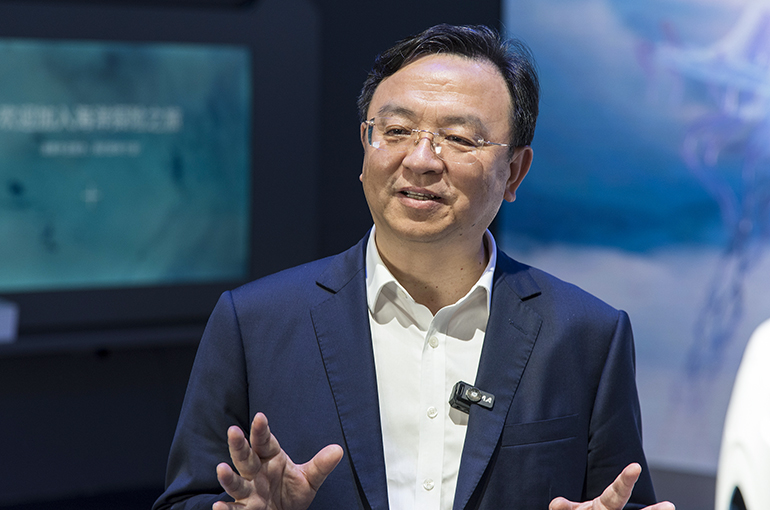 BYD’s Chief Says Vehicle Electrification Still Has Issues, Safety Must Come First in Smart Driving Era
BYD’s Chief Says Vehicle Electrification Still Has Issues, Safety Must Come First in Smart Driving Era(Yicai) June 6 -- Electrification represents just the “first half” of the auto industry’s transformation, one that still has issues, while the “second half” is about smart technology, where safety must be the top priority, according to the chairman of Chinese car giant BYD.
Some of the issues with electrification include slower charging speeds and subpar cold-weather battery performance compared with internal combustion engine vehicles, Wang Chuanfu said at BYD's annual shareholders meeting today. As these technologies improve, the consumer experience will become better, and then fuel-powered vehicles can be phased out, he added.
On the topic of the “second half,” Wang said that safety is the primary goal for developing smart driving. Autonomous vehicles can compensate for human drivers’ shortcomings, reducing traffic accidents and ensuring lower insurance payouts, he noted.
Cars are a means of transportation, and the top priority must be to ensure safety, Wang noted. Placing a high emphasis on safety at this stage will benefit the sector's development and will contribute to the long-term healthy growth of intelligent driving, he added.
Technology can enhance the reaction speed of machines and increase the number of sensors to compensate for human flaws, according to Wang.
Regarding BYD's overseas business, Wang said that car prices abroad are relatively stable. The Shenzhen-based company exported around 90,000 vehicles last month and expects this year to be very good, with a gradual monthly increase in exports, he added.
Just as BYD entered a period of explosive growth in 2020, its development in overseas markets is also entering a similar phase, Wang said, adding that BYD's overseas expansion strategy is as crucial for its future development as its luxury autos one.
BYD's net profit doubled to CNY9.2 billion (USD1.3 billion) in the three months ended March 31 from a year earlier, while its revenue rose 36 percent to CNY170.4 billion (USD23.7 billion).
The company cut the prices of 22 models by as much as 34 percent on May 23, sparking a new price war in the world’s biggest auto market. Its sales rose 15 percent to 382,476 cars last month from a year ago.
Editor: Martin Kadiev